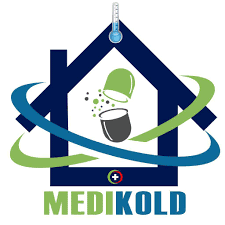Nutrition Tips for Managing High Blood Pressure: 6 Things to Include in Your Diet
High blood pressure can be a severe health concern, but with the right nutrition plan, you can keep your blood pressure under control. But what should you include in your diet to manage your blood pressure?
This blog post will discuss six things to include in your diet that can make a huge difference in controlling your blood pressure. Read on to learn more!
Introduction to Diet for High Blood Pressure
A healthy diet is essential to managing high blood pressure and reducing the risk of cardiovascular disease. Eating a balanced diet low in sodium, fat, and sugar can help lower blood pressure and reduce the risk of complications.
Increasing the consumption of fruit, vegetables, whole grains, and lean protein can be beneficial treatments for high blood pressure.
A diet high in fiber and potassium can also improve health outcomes by helping to reduce sodium intake and regulate blood pressure, such as whole grains, legumes, and lean proteins such as fish and chicken.
You should limit your sodium intake, avoid foods high in saturated and trans fats, and reduce your consumption of processed and sugary foods.
Drinking plenty of water throughout the day, limiting alcohol intake, and eating lean proteins such as fish or poultry are beneficial elements to add to your diet when managing high blood pressure.
Taking these precautions in mind when it comes to diet can help keep your blood pressure under control.
Ultimately, following a healthy diet is an effective treatment for high blood pressure.
Nutritional Requirements for Managing High Blood Pressure
1. Citrus Fruit
Citrus fruits have long been known to be beneficial in lowering blood pressure. Studies have shown that eating citrus fruits daily can help reduce blood pressure levels and hypertension risk. Eating various citrus fruits can provide a range of essential vitamins and minerals to help regulate blood pressure. For example, the Vitamin C found in citrus fruits helps keep the walls of the arteries and veins flexible, allowing them to expand and contract easily. This helps reduce the risk of high blood pressure. Citrus fruits also contain potassium, which helps keep blood pressure healthy.
2. Pumpkin Seeds
Pumpkin seeds have long been recognized as a valuable source of nutrition and have been used to support a variety of health conditions. Recently, research has shown that pumpkin seeds may also be beneficial in managing high blood pressure. Studies have shown that compounds in pumpkin seeds, such as magnesium and potassium, can help promote healthy blood pressure levels. Additionally, these compounds have been found to relax the blood vessels, helping to reduce pressure. Furthermore, pumpkin seeds are a good source of the anti-inflammatory properties of omega-3 fatty acids associated with high blood pressure. Therefore, including pumpkin seeds in a diet may help manage high blood pressure.
3. Amaranth
Amaranth is an integral part of a healthy diet, especially regarding high blood pressure. It is a whole grain containing all three-grain components: the bran, germ, and endosperm. This makes it an excellent nutrient-dense food packed with essential vitamins and minerals. Amaranth is high in fiber, which helps to reduce cholesterol levels and keep blood pressure in check. Additionally, it is a great provider of magnesium, which aids in blood vessel relaxation and lowers blood pressure. Additionally, amaranth is high in potassium, which helps to balance out the effects of sodium and lower blood pressure.
4. Pistachios
Antioxidants and other nutrients are abundant in pistachios. have been found to affect hypertension and other cardiovascular health issues positively. Studies have shown that regular consumption of pistachios can help reduce high blood pressure levels, as well as reduce cholesterol levels. Additionally, pistachios are a good source of fiber, magnesium, and potassium, which are crucial for maintaining healthy blood pressure levels. Furthermore, pistachios are a low-sodium food, which can help reduce sodium intake and benefit cardiovascular health.
5. Carrots
A fantastic source of dietary fiber is carrots—and vitamin A, which are essential for maintaining healthy blood pressure. Eating a diet rich in carrots can assist in lowering the likelihood of having high blood pressure and even help reduce the symptoms of existing hypertension. In addition, carrots contain potassium, which allows the body to maintain the balance of fluids in the body and helps regulate blood pressure.
6. Salmon and other fatty fish
Salmon and other fatty fish are an essential part of a healthy diet for individuals with high blood pressure. The omega-3 fatty acids in these fish are abundant. And other nutrients that help reduce inflammation and lower blood pressure. Eating salmon and other seafood that are rich in omega-3 fatty acids, mackerel, herring, and sardines, can help reduce the risk of hypertension and other heart-related issues.
To Conclude
In conclusion, managing your high blood pressure is possible with the right nutrition plan. You should focus on eating plenty of fresh produce, healthy grains, low-fat dairy, lean proteins, and fruits and vegetables. To keep your blood pressure in check. Additionally, limiting your sodium intake and avoiding processed foods is essential when managing your hypertension. With these six tips in mind, you’ll be able to create a more balanced diet to help you control your blood pressure.



